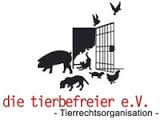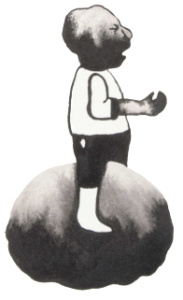 The case of Tierbefreier E.V. v. Germany before the European Court of Human Rights (ECHR) concerned the dissemination of a film of 20 minutes with the title ‘’Poisoning for Profit’’, showing monkeys used for research in a laboratory. The film was based on footage made by an undercover journalist who had used a hidden camera to document how the monkeys were treated by staff and what their living conditions were like. Before the applicant association Tierbefreier E.V. made the film public parts of the footage had been showed on TV by various broadcasting companies. The content of the film consisted to a large extent of accusations that the company using the monkeys did not live up to existing legal standards for using research animals. The German courts issued an injunction against Tierbefreier to refrain it from showing the movie, or in any way make the material available to the public. Subsequently, Tierbefreier brought a complaint to the ECHR claiming that its right to freedom of expression had been violated and that it had been discriminated against since others had been allowed to use the footage.
The case of Tierbefreier E.V. v. Germany before the European Court of Human Rights (ECHR) concerned the dissemination of a film of 20 minutes with the title ‘’Poisoning for Profit’’, showing monkeys used for research in a laboratory. The film was based on footage made by an undercover journalist who had used a hidden camera to document how the monkeys were treated by staff and what their living conditions were like. Before the applicant association Tierbefreier E.V. made the film public parts of the footage had been showed on TV by various broadcasting companies. The content of the film consisted to a large extent of accusations that the company using the monkeys did not live up to existing legal standards for using research animals. The German courts issued an injunction against Tierbefreier to refrain it from showing the movie, or in any way make the material available to the public. Subsequently, Tierbefreier brought a complaint to the ECHR claiming that its right to freedom of expression had been violated and that it had been discriminated against since others had been allowed to use the footage.
The German courts paid attention to the fact that Tierbefreier on several occasions had showed its support to unlawful actions in support of animal rights. The homepage of the association stated that “An animal’s life will also be more important for us than a broken door, a destroyed laboratory or an incinerated meat transport“. The German Court of Appeal also noted that the film was not merely criticism of the use of monkeys, but also conveyed the misleading message that the company using the monkeys was in breach of the law. The journalist who had produced the footage and another animal rights activist were ordered by the German court of Appeal to refrain from disseminating the film ‘’Poisoning for profit’’. However, they were allowed to use the footage in other ways, as long it would not be connected to a misleading message.
The ECHR noted that there had been an interference with Article 10 and that the interference was prescribed by law. In assessing whether the interference was necessary in a democratic society, the Court paid attention to the fact the accusations made in the film could not be substantiated. Would Tierbefreier be allowed use footage in the future, the organisation could be expected to continue its unfounded allegations. Furthermore, Tierbefreier had militated extensively against the company using the monkeys. It was therefore justified that the injunction against Tierbefreier was more far-reaching than the injunctions against the journalist and the other activist. The Court also noted that the interference with Article 10 did not concern a criminal sanction but merely a civil injunction. For these reasons, the Court reached the conclusion that the German courts had struck a fair balance between Tierbefreier’s right to freedom of expression and the company’s interest in protecting its reputation.

